British military leaders admit 'flaws' in Afghanistan strategy
Armed services were unequipped to fight in both Iraq and Afghanistan, creating a 'perfect storm'
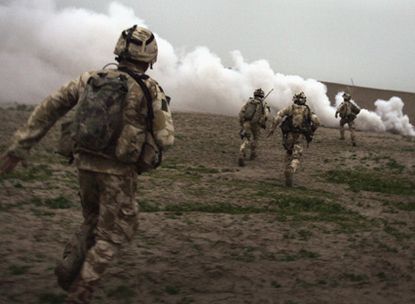
Former Army leaders have admitted that the British military was not equipped to fight in Iraq and Afghanistan at the same time, creating a "perfect storm".
General Sir Peter Wall, who stood down as Chief of the General Staff last month, has said that British soldiers were sent into Afghanistan based on a "wrong" calculation of resources.
After 13 years in the country, British service personnel will be withdrawn almost completely from the country by the end of the year. More than 450 British soldiers died in the conflict, with hundreds suffering serious injuries such as limb amputations.
Subscribe to The Week
Escape your echo chamber. Get the facts behind the news, plus analysis from multiple perspectives.

Sign up for The Week's Free Newsletters
From our morning news briefing to a weekly Good News Newsletter, get the best of The Week delivered directly to your inbox.
From our morning news briefing to a weekly Good News Newsletter, get the best of The Week delivered directly to your inbox.
Speaking on the BBC2 series Afghanistan: The Lion's Last Roar, Sir Peter said that military leaders sent 3,300 troops into Afghanistan in 2004 despite knowing that they did not have the resources to fight in more than one campaign.
"We had put forward a plan saying that for the limited objectives that we had set ourselves, this was a reasonable force. And I freely admit now, that calculus was wrong," he said.
Lord Dannatt, head of the Army between 2006 and 2009, also admitted that their assumption that the Iraq war was winding down by summer 2006 was "flawed".
He told the BBC: "We called it the perfect storm, because we knew that we were heading for two considerable size operations and we really only had the organisation and manpower for one."
In the summer of 2006, soldiers found themselves overstretched, under constant fire and dangerously low on food, water and ammunition, says the BBC.
Lord Richards, who commanded the 35,000 troops from 37 nations in Nato's International Security Assistance Force (Isaf) from 2006 to 2007, said there was an "institutional reluctance" to accept that the conflict could deteriorate.
"I didn't have a reserve, I didn't even have an aircraft to fly round my own patch," he said. "I mean we just weren't in the real world."
The Ministry of Defence admitted there were "military obstacles" at the beginning of the Afghanistan campaign, but said "we can be proud of what we have achieved".
The terrorist threat to the UK from the region was "substantially reduced" and the UK has played an "important role in training Afghan security forces", it said.
Create an account with the same email registered to your subscription to unlock access.
Sign up for Today's Best Articles in your inbox
A free daily email with the biggest news stories of the day – and the best features from TheWeek.com
-
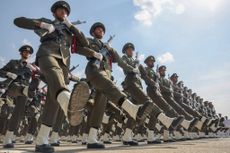 'A direct, protracted war with Israel is not something Iran is equipped to fight'
'A direct, protracted war with Israel is not something Iran is equipped to fight'Instant Opinion Opinion, comment and editorials of the day
By Harold Maass, The Week US Published
-
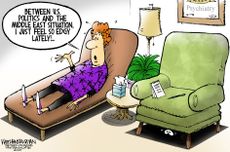 Today's political cartoons - April 17, 2024
Today's political cartoons - April 17, 2024Cartoons Wednesday's cartoons - political anxiety, jury sorting hat, and more
By The Week US Published
-
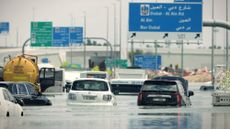 Arid Gulf states hit with year's worth of rain
Arid Gulf states hit with year's worth of rainSpeed Read The historic flooding in Dubai is tied to climate change
By Peter Weber, The Week US Published
-
 Texas’s abortion law: the Republicans get their way, at last
Texas’s abortion law: the Republicans get their way, at lastSpeed Read SB8 authorises private citizens to sue anyone who performs, ‘aids or abets’ an abortion after six weeks of pregnancy
By The Week Staff Published
-
 Changing legal gender: what’s new and how does it work?
Changing legal gender: what’s new and how does it work?Speed Read Cost of a gender recognition certificate application is reduced from £140 to £5
By Kate Samuelson Last updated
-
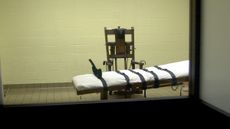 America’s bloodiest state votes to ban the death penalty
America’s bloodiest state votes to ban the death penaltySpeed Read Virginia has executed more than 1,300 people in its 400-year history
By Joe Evans Last updated
-
 FBI accused of ‘fake’ background check on Donald Trump Supreme Court nominee
FBI accused of ‘fake’ background check on Donald Trump Supreme Court nomineeSpeed Read Democratic senator calls for ‘proper oversight’ over Brett Kavanaugh investigation into sexual assault claims
By Joe Evans Last updated
-
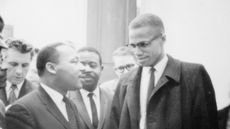 Family of Malcolm X claims letter proves FBI and NYPD involved in his murder
Family of Malcolm X claims letter proves FBI and NYPD involved in his murderSpeed Read Daughters of assassinated civil rights leader demand reopening of investigation
By Joe Evans Last updated
-
 Meghan Markle granted nine-month delay in Mail on Sunday privacy case
Meghan Markle granted nine-month delay in Mail on Sunday privacy caseSpeed Read Duchess of Sussex had applied for summary judgement in battle over letters sent to her estranged father
By Chas Newkey-Burden Last updated
-
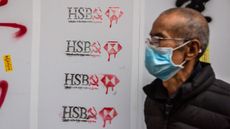 Hong Kong: how HSBC became wrapped up in China’s ‘security law’
Hong Kong: how HSBC became wrapped up in China’s ‘security law’Speed Read Global bank has spent much of 2020 embroiled in fierce debate over territory’s sovereignty
By Gabriel Power Published
-
 Meghan Markle to pay £67,000 after losing first round of legal battle against Mail
Meghan Markle to pay £67,000 after losing first round of legal battle against MailSpeed Read Duchess of Sussex is suing the newspaper’s publisher for printing parts of private letter to her father
By Joe Evans Published